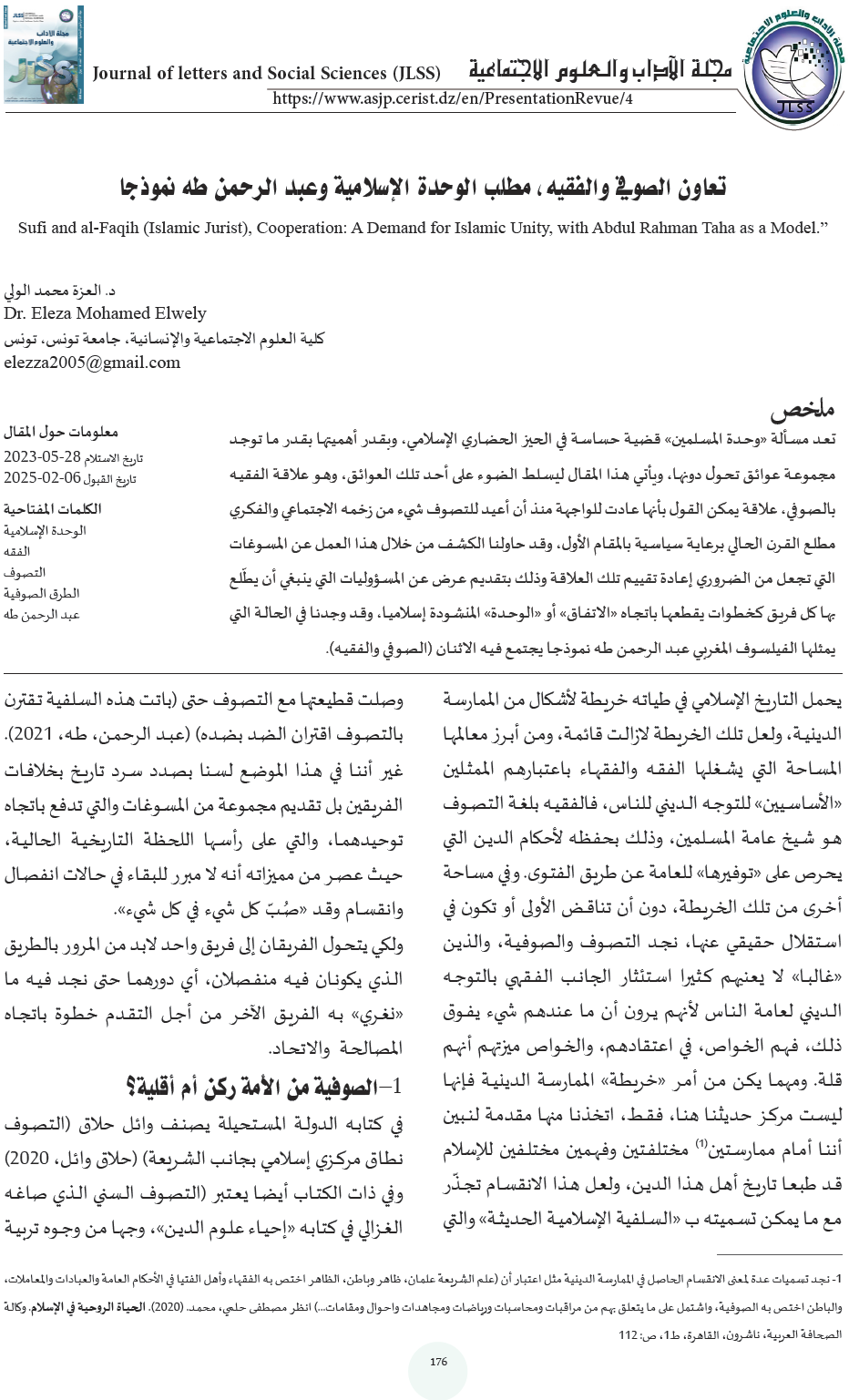تعاون الصوفي والفقيه، مطلب الوحدة الإسلامية وعبد الرحمن طه نموذجا
معلومات حول المقال: تاريخ الاستلام 2023-05-28 ----- تاريخ القبول 06-02-2025
الكلمات المفتاحية:
English
islamic unity، jurisprudence، sufism، sufi sects، Abdul Rahman Tahaالعربية
الوحدة الإسلامية، الفقه، التصوف، الطرق الصوفية، عبد الرحمن طهFrançais
unité islamique، jurisprudence (fiqh)، soufisme، confréries soufies، Abderrahmane Tahaالملخص
English
العربية
Français

